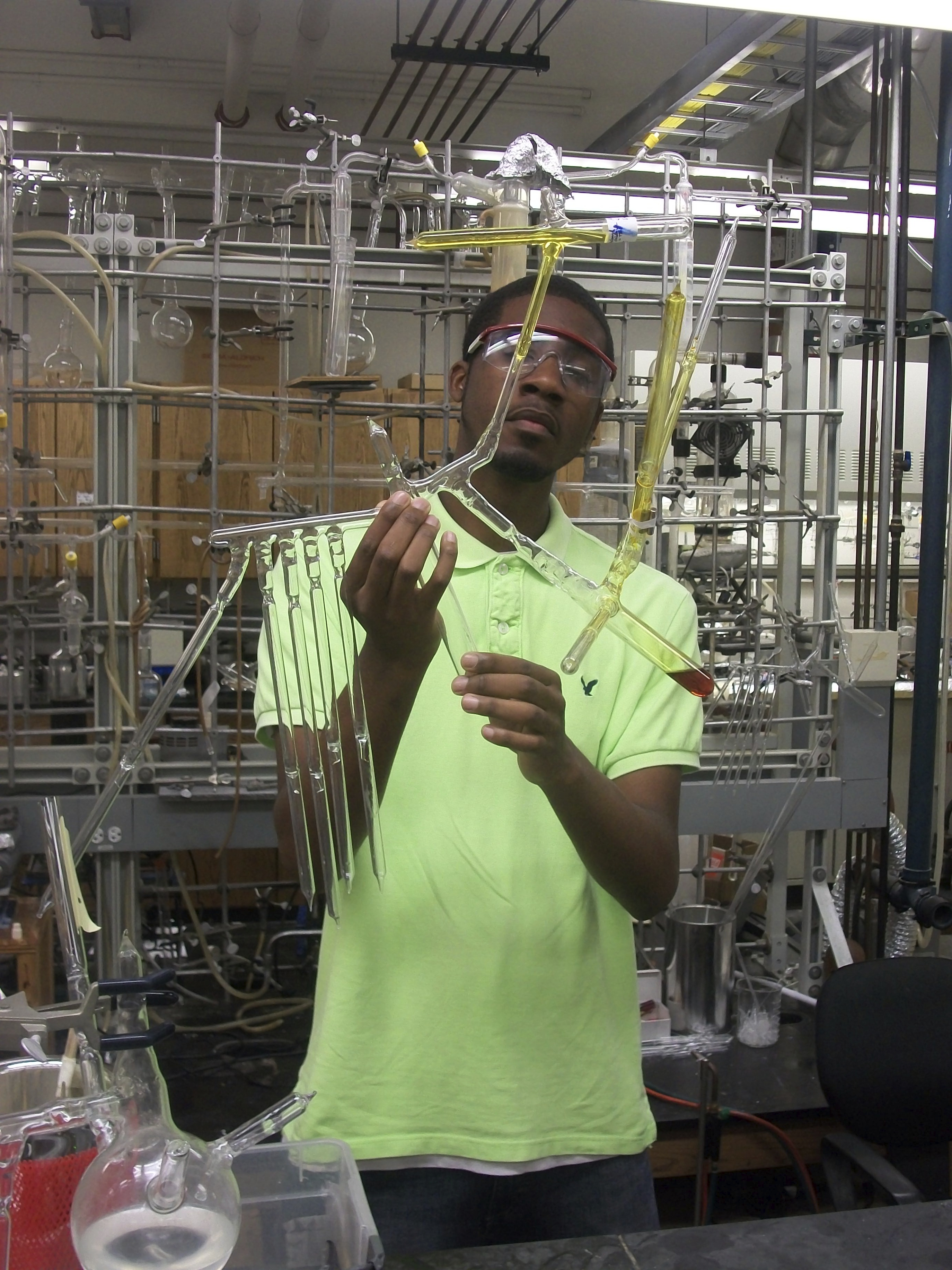Hey @nbcsnl, clever skit, but for the record, I'm the same height as @therock.
— Tom Cotton (@SenTomCotton) March 30, 2015
Humming hymns and talking himself, Brandon Hambrick lets his photographic memory take him step by step through a process known as polymerization.
In the science experiment, the 18-year-old from the Harrison area is creating a chain of large molecules by combining smaller ones - kind of like linking many small Legos to create a big one.
Unlike most students at the University of Tennessee in Knoxville, Hambrick is still on campus for the summer, one of eight students selected by the school for this year's Summer Undergraduate Research Program in chemistry, which is funded by the National Science Foundation. Having just finished his freshman year at UT, he's the youngest student selected for this year's program, at least 3 years younger than almost every other participant.
As a child, Brandon often found himself reading books - everything from fiction to astronomy. Even as a kid, he knew the secret of science: Asking questions.
A 2012 graduate of Central High, Brandon won many academic honors in high school, including the Spirit of the Mountain award, the Freedom Foundation's Mr. Congeniality award and the Consortium of Doctor's Academic Excellence Award.
"I asked hundreds of questions about everything; they were my greatest allies," he says.
Though a scientist at mind, Hambrick also has a deep Christian faith, though many would argue the two don't mix. Brandon disagrees.
"I don't see science as God's opposite; I actually see science as a way to prove God does, in fact, exist," he explains. "Synthesizing polymers in the lab always gives polymer chains of different lengths, but natural polymers, like the resin found in many trees, always produces polymer chains of identical length throughout. I see that as evidence of God."
UT professor Shawn Campagna, who has a Ph.D. in chemistry and is on the program's selection committee, says picking Hambrick was not a hard choice.
"Even though he's much younger than the rest of the participants, Brandon displayed the same aptitude as the others in his application," Campagna says. "Not only is he extremely smart, he wants to share his knowledge with everyone."
Coming in as the youngest researcher can be perturbing, but Hambrick faced the opportunity head-on.
"I felt the need to prove myself when walking into the laboratory and, though I was a bit timid around the many top-notch researchers at first, it didn't take long for me to be very comfortable," he explains.
Majoring in Materials Science and Engineering, he is no stranger to the Science and Engineering Research Building, where all of his summer experiments take place. He works closely with Jimmy Mays, another Ph.D. in chemistry, and his doctoral student researchers, who are as much artisans as they are scientists in the art of glassblowing to create their own intricate laboratory glassware.
Mays' research group works closely with polymers. Though a seemingly simple concept, polymers are the fabric of the modern technological age with applications in nearly every aspect of daily life. They are the main molecular components of everything from milk jugs to car tires, from dashboards to baseball bats and golf clubs. Hambrick and the other researchers in the Mays' lab are trying to find different ways of producing synthetic polymers.
Hambrick is working on a new synthetic rubber that outperforms the top rubber now on the market. The project was original completed by Mays, but Hambrick is doing experiments to see Mays' synthetic rubber can be created using cheaper materials.
"Brandon didn't know exactly what everything was when he first got here, but he worked extremely hard to learn," explains Mays. "Now it's obvious he understands most all of the procedures; he's extremely active and organized."
Many students might see staying on campus over the summer as punishment, but Hambrick says he has enjoyed it tremendously.
"It has given me time to grow both spiritually and as a person," he explains. "I've met some of the best people and owe a lot to this summer."
Once done with his undergraduate studies, Hambrick plans on attending graduate school and ultimately wants to research energy and nanotechnology.
"I seek an efficient means of producing energy that is completely free to the world. I hope to help get rid of fossil fuels once and for all."

